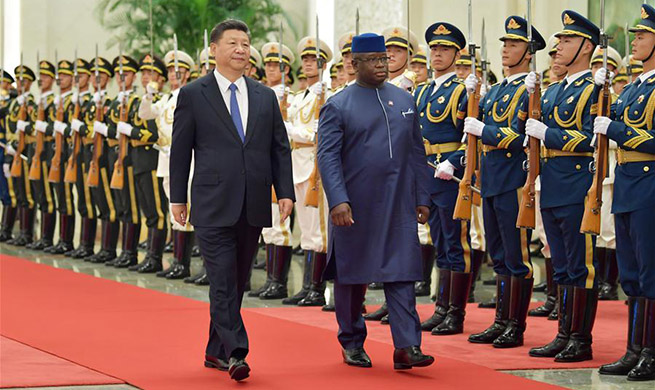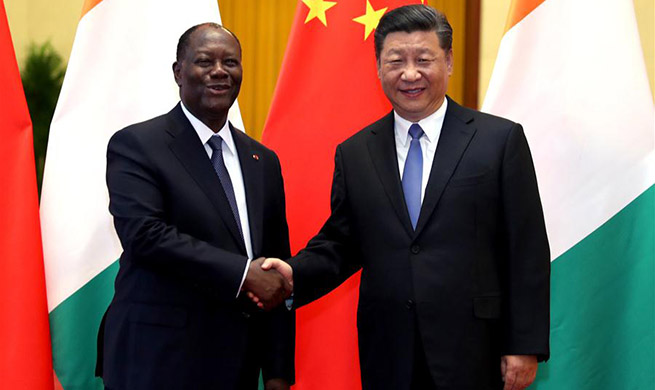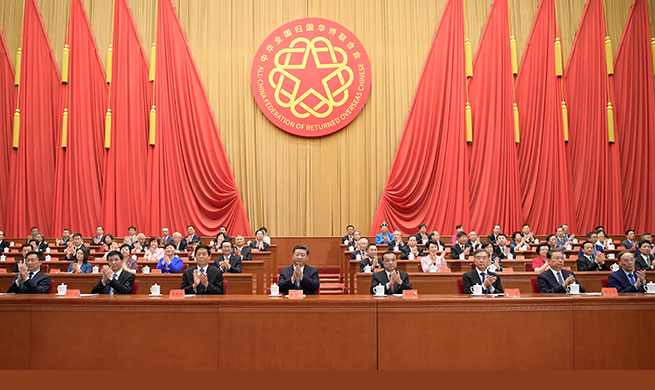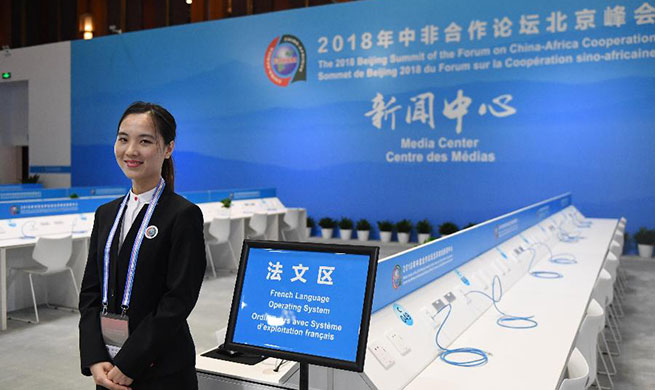By Stefania Fumo
VENICE, Italy, Aug. 30 (Xinhua) -- A three-day film promotion series organized by Xinhuanet Europe and the Italian film industry association (ANICA) called Focus on China kicked off Thursday at the 75th Venice International Film Festival with the Young Filmmakers Training Program Films Project, now in its third edition.
Young Chinese filmmakers from the Beijing Film Academy screened trailers for features they would like to direct, then explained their artistic process, their budget needs, where they are in the production process, and their overall vision.
Among them was Mao Zexiang, who showed a work-in-progress titled Wilder, about a 17-year-old boy whose father dies suddenly in a car crash. The protagonist begins to investigate his father's death, and in so doing, discovers that his father had a secret life he knew nothing about.
"The heart of this movie is that it is about youth -- a coming-of-age story in which the protagonist discovers his father's inner life, which he had known nothing about. In the process, he will discover a new identity," explained Mao, who shot the trailer over a period of two days in south-western China, with the actors speaking a mixture of local dialect and Mandarin.
The filmmaker said he wants to show "the reality of life in provincial China", and also that he would like to collaborate with filmmakers abroad.
The presentations were followed by a roundtable called The Position of the Artistic Film in the Market, during which Beijing Film Academy Vice President Xie Fei cautioned young filmmakers that they should be realistic about their budgets, and not ask for millions when they could achieve the same target with less, especially in an era in which digital technology has significantly lowered the costs of filmmaking.
"Why do you want so much money?" Xie Fei asked the audience. "I would advise you to be more cautious with your budget requirements -- 500,000 to 600,000 yuan should be enough."
However Italian producer Alessandro Silvestri said that on the contrary, filmmakers should not aim low and not be afraid to ask for the money they think they need to make their visions become a reality.
A successful film, he said, comes about when a filmmaker following his or her inner vision makes a movie that "responds to an unexpressed need within the audience."
"In my opinion directors should not try for the lowest possible budget," Silvestri said. "They should try to obtain the maximum possible from the market, so they can have the maximum possibility of expressing themselves."
He advised young filmmakers to find a producer who feels the same way they do about their project, one "who has the same fire, the same soul" in trying to make their film happen.
ANICA International Department chief Roberto Stabile disagreed, saying he hopes young filmmakers will try to stick to lower budgets and not look for the big bucks, especially not with Italian investors.
"We are used to making films that reach the hearts of viewers all over the world, with very few economic resources," Stabile said.
He went on to praise the projects brought by the young Chinese filmmakers, saying these are the kinds of ideas that can "bring Italian producers closer and create cooperation" in film financing.
Focus on China continues Friday and Saturday with conferences and roundtables on topics such as shooting locations in China and a Sino-Italian Co-Production













